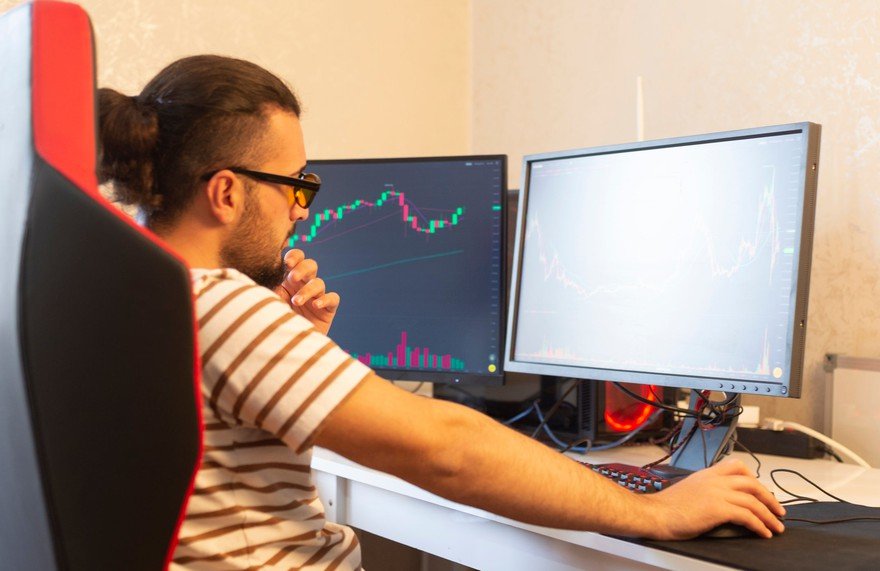Futures and options are both financial instruments used to profit on, or hedge against, the price movement of commodities or other investments.
The key difference between the two is that futures require the contract holder to buy the underlying asset on a specific date in the future, while options -- as the name implies -- give the contract holder the option of whether to execute the contract.
That difference has an impact on how futures and options are traded and priced and how investors can use them to make money.

Futures vs. options
| Futures | Options |
|---|---|
| Contract holder is required to take ownership of the underlying asset. | Contract holder has the right, but no obligation, to purchase an underlying asset. |
| Price of the future purchase determined by current market price. | Price of the future purchase specified in the contract. |
| Price can fall below $0. | Price can never fall below $0. |
| Less volatile price changes. | Value quickly declines over time and fluctuates more widely with changes in the underlying asset's value. |
Futures explained
When someone refers to "futures," they're really referring to futures contracts. A futures contract says a contract holder will buy the underlying asset on a certain date regardless of the asset's market price at that time. They agree to a price when they purchase the contract. The underlying asset could be a physical commodity like corn or oil or another financial instrument such as stocks.
Futures contracts use a standardized quantity for each underlying asset. Oil futures, for example, trade in contracts for 1,000 barrels. Corn, on the other hand, trades with contracts for 5,000 bushels, and each bushel is 56 pounds.
When you buy a futures contract, your broker won't require you to stake the entire value of the contract. Instead, you'll only have to hold a small percentage of the cash needed for the purchase, which is called an initial margin payment.
The price of the contract will fluctuate. If you, as the contract holder, are showing too big of a loss, your broker may require you to deposit more money.
Most commodity traders will close a position before expiration. Most people don't have the space to store thousands of barrels of oil or (literally) tons of corn.
When you sell a futures contract, you should receive enough funds to cover the margin loan, and, hopefully, have some left over as profit.
For example, if you bought an oil futures contract for $70, and the price goes up to $75, you'll make $5,000 ($5 x 1,000 barrels) when you sell. In the interim, you may only have to hold a few thousand dollars in your brokerage account, so the return on investment can be substantial.
Options explained
Options contracts come in two flavors: puts and calls.
- Puts: Give the contract holder the right, but not the obligation, to sell an underlying asset at a specified price by a certain date.
- Calls: Give the contract holder the right, but not the obligation, to buy an underlying asset at a specified price by a certain date.
The underlying asset is another financial instrument such as a stock, bond, or even a futures contract. A standard stock option is for 100 shares of the underlying stock. Options for commodities futures use the same standard units as the futures.
When you buy an option, you pay a premium for the option. This is usually just a small amount relative to the strike price of the contract. As an options buyer, this is the most you have at risk. An options contract can never be worth less than $0.
Futures contracts, on the other hand, can and do go into negative pricing. This is because futures contract holders are required to buy the underlying asset regardless of market price.
So, if the asset is worth less than the cost of physically taking control of it, you'd have to pay someone to take the contract off your hands. Oil futures briefly went negative in 2020.
Buying a call option is a bet that the underlying asset will appreciate in value before the contract's expiration. Buying a put option is a bet it will decline in price.
However, even if you take the right side of the bet, there's still a chance your options contract will reach expiration worth less than what you paid. This is because time will eat into the value of your options contract.
Related investing topics
Examples of futures and options
If you want to buy a futures contract in gold, for example, the first thing you have to do is determine how long you want to hold the contract. Futures contracts are typically exercised on the third Friday of the month, but they may not be sold for every month.
When you buy a futures contract, you're agreeing to buy the underlying asset at the price of the contract. For example, gold futures currently trade around $1,800 at the time of this writing. You can buy a gold contract maturing in June 2022, and, regardless of what the price of gold does between now and then, you'll pay about $1,800 per ounce.
Options work a bit differently. When you trade options, not only do you get to choose an expiration date, you'll also choose a strike price for the contract. The premium on the contract is determined by several factors largely influenced by the difference between the strike price, the current price of the underlying security, and how far out from the expiration date it is.
For example, you can buy a call option (the right to buy) for Apple (NASDAQ:AAPL) shares around its current trading price expiring in one month for around $4, but a call option with the same strike price expiring a year from now costs $17. Likewise, a lower strike price results in a higher premium.
Understanding the differences in how futures and options are bought and sold and how they're priced can help you make better investment decisions.








